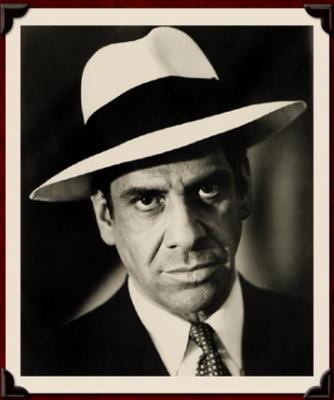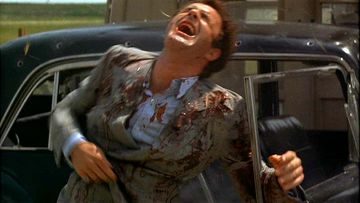
There is an absolutely brilliant piece of writing in Francis Ford Coppola’s The Godfather. It’s not the opening scene which perfectly establishes the power and darkness of Marlon Brando’s Godfather Vito Corleone and the tone of the film and the resulting trilogy. It isn’t one of the many classic lines; “I believe in America!” “I’m gonna make him an offer he can’t refuse,”, “Luca Brasi sleeps with the fishes”, “Keep your friends close but your enemies closer,” “Don’t ever take sides with anyone against the family again…ever.” (a line which foreshadows Michael Corleone’s murder of his brother and eventual moral downfall as he destroys his own family). It’s not the big, showy assassination scenes or the unforgettable minor characters that are patiently sketched out. I could go on listing all the many examples of masterpiece writing.

The scene I’m referring to is the subtle and under-appreciated negotiation scene with thug-on-the-rise Virgil Sollozzo a.k.a. The Turk. Brando’s Godfather is there as is his son Sonny (James Caan) and two of their henchmen with The Turk at the negotiating table. It is a verbal game of cards with everyone keeping their opinions close to their chests and giving nothing away. It is the 1940s just after World War II. The Turk wants money from the Corleone family to set up a drug-dealing operation (after the Prohibition booze boom of the the 30s, drugs would be the next one for organised crime) which is “infamita” and unacceptable to Brando’s Godfather. This frustrates The Turk and also Corleone’s son who can see the huge opportunity to get in early to the drugs market and make vast profits.

The Turk offers a sweetener that rival mob family The Tattaglias will guarantee the Corleone family’s investment. Hot-headed Sonny foolishly puts all his cards on the table and reveals an eagerness for the deal. “Wait a minute,” Sonny says, “are you telling me that The Tattaglias will guarantee our investment?” There are subtle reaction shots from everyone around the table. It’s a huge mistake and all of them know it immediately. The Godfather tries to reprimand his son and makes apologies for his rashness but it is too late. A division in the family is now revealed and Sollozzo can start to take lethal action to get his deal.

That one line will change the course of the rest of the movie and the other two films that follow. It will result in the death of Sonny Corelone, the attempted murder of his father Vito, the exile of his brother Michael (Al Pacino) to Sicily for taking revenge on Sollozzo and a crooked cop and Michael’s subsequent merciless rise to power on his return, the near-destruction of The Corleone family and an all-out war between the five Mafia families.


Sonny dies before most of these things happen, so he never sees the full consequences of his actions, but we don’t in life. We see some of them, but never all. Another nice touch in the screenplay. The Corleone family are clearly based on the Kennedy clan and their rise from immigrant obscurity to power and success in America with help from organised crime. There then followed assassinations and an unbelievable litany of tragedies just like the Corleones endure. No wonder Americans lapped up The Godfather in the early 70s; they were watching their own history writ large with the drama bringing them even closer inside it.
The Sollozzo negotiation scene is rarely commented upon but it is masterful in its execution. Sonny’s unthinking rage is the Achilles heel of the Corleone family, a thread sticking out of a quilt that is gently tugged upon to start the whole thing unravelling. A superb piece of writing that, in a movie that is all about strength and power, reveals a realistic human frailty. The moment is even foreshadowed by Brando who says: “Women and children can be careless but never men.” A great deal of clever planning has gone into the script’s epic construction by Coppola and Mario Puzo based on Puzo’s 1969 novel of the same name. It rightly won the Oscar for Best Screenplay.
Text: © Stewart Stafford, 2016. All rights reserved
The Godfather © Paramount Pictures
If you’re a generous person who believes this writer should be paid for his hard work, you may donate here.
To read more of this author’s work, check out his short story Nightfall and novel The Vorbing.








